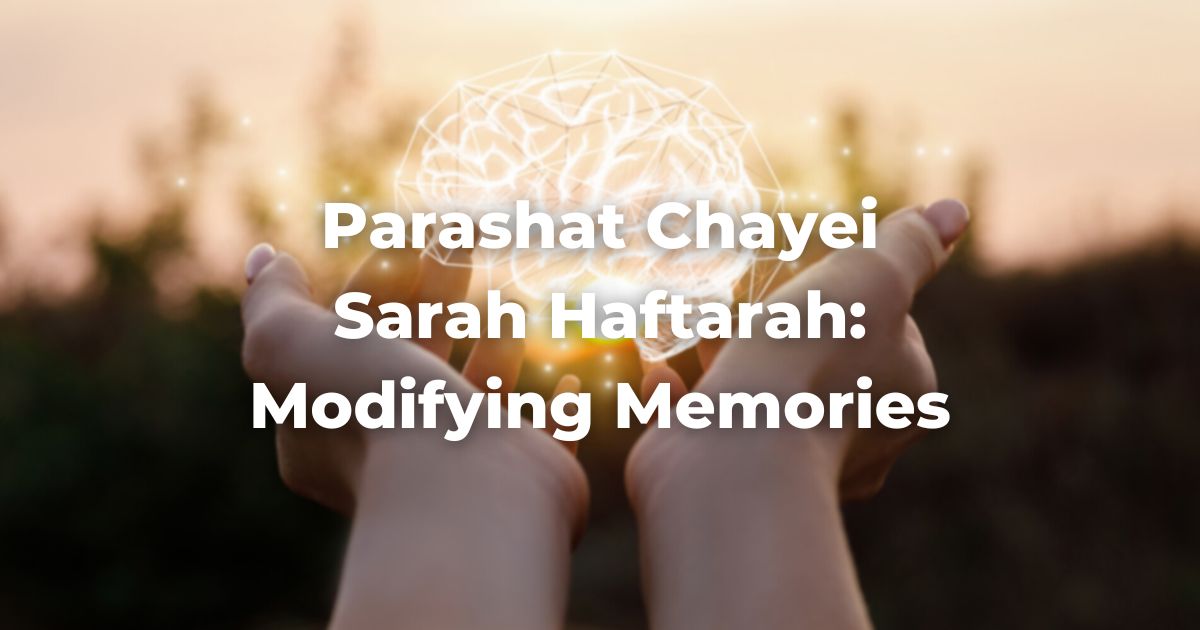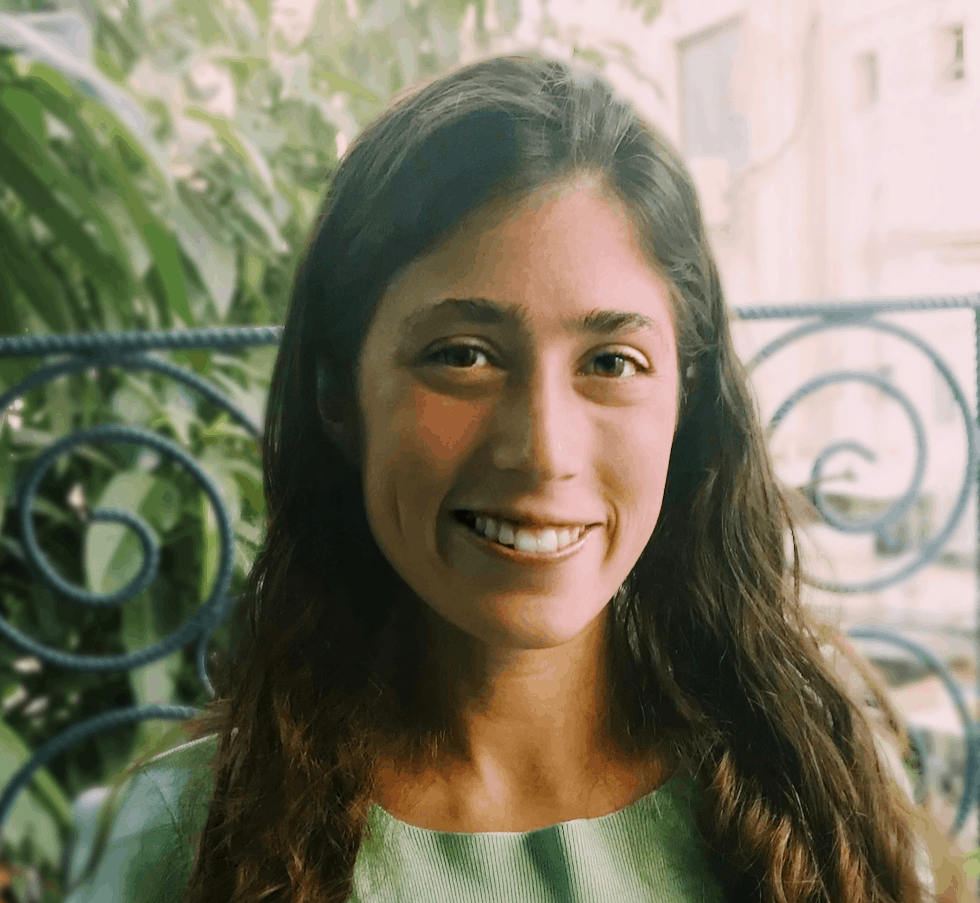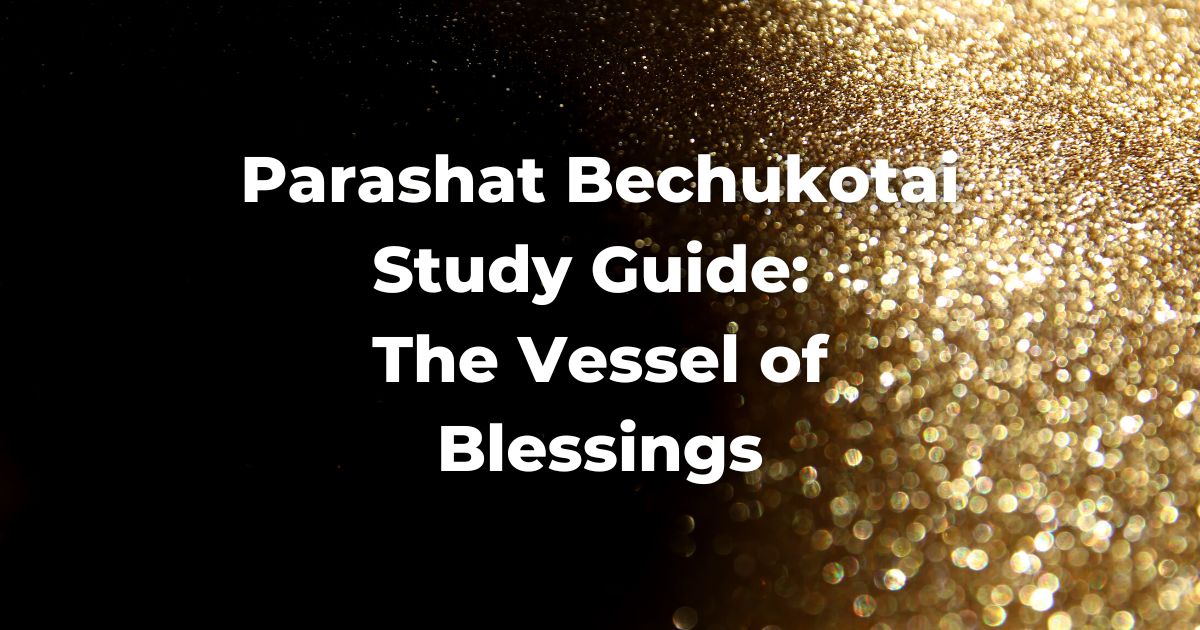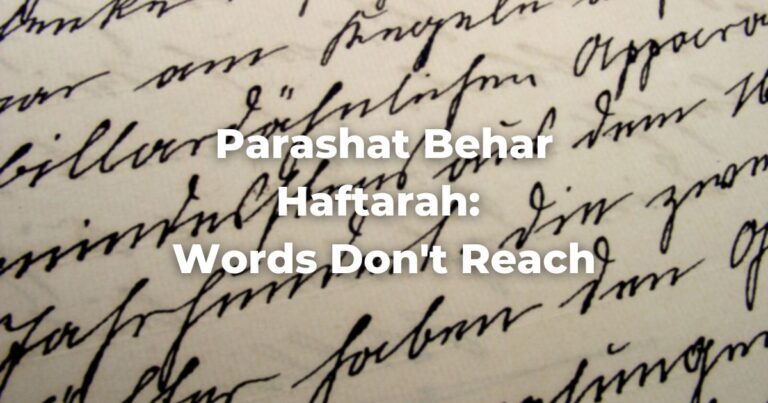Parashat Chayei Sarah Haftarah Reflection
Memory is unreliable.
Current science claims that each time we think we are remembering something that has happened, we are in fact reconstructing the event—creating the story of what happened based on some details we remember and some details we unconsciously invent based on our current moods and situations.
Each time we access a memory, we slightly rewrite it, creating an altered version of the past that seems totally true to us.
In this week’s parashah, Chayei Sarah, we read the story of Abraham’s servant procuring Rebecca as a wife for Isaac. The servant will retell the story of why he was sent, what his plan was, and what happened between him and Rebecca at the well over and over again within Genesis 24.
It’s the longest chapter in Genesis—we hear the story so many times we lose count. The servant tells it each time to a slightly different audience and the story itself is slightly different. Some details are emphasized, some disappear.
His role, his relationship to God, and his purpose concerning Rebecca shift depending on the audience and the retelling. Perhaps he is incredibly savvy. But by the end of Genesis 24, we are hard pressed to recount what the actual truth of the original story is.
We cannot say which of the tellings reflects reality. And having modified his memory so many times, it is likely that the servant cannot either.
Our haftarah, 1 Kings 1, also tells a story of the limits of memory.
King David has grown old and feeble. He is no longer able to keep his own body warm, much less rule a country. The nation seems to be run by a group of nameless people taking care of the king.
Already, we are presented with a picture of David that is incompatible with our memory of David from all the prior stories.
He is strong and vibrant, a warrior and a poet, a lover and a king.
But now we get a picture of a man who does not remember who he once was and feels no need to keep up the appearance of dignity for the sake of the nation. Naturally, potential heirs step into this power vacuum. Adonijah, one of David’s sons, begins to act as king. In response, Bathsheba, one of David’s wives, and Nathan the prophet conspire to put Bathsheba’s son, Solomon, on the throne.
What happens next is a challenge to our concept of memory. We hear a story in four tellings of how David had once promised the throne to Solomon.
In each telling, the story is slightly different, depending on the teller and the audience.
The first telling is as a scheme that Nathan relates to Bathsheba to convince David that he owes the throne to Solomon. The final telling is David proclaiming that he will do as he now thinks he remembers having once promised, and put Solomon on the throne after him. David even swears by God to do this.
The sticky bit is that we have no prior story of David ever having made such a promise.
David hears this story first from Bathsheba and then from Nathan and incorporates it into himself such that he either is able to recall a forgotten memory or create a completely false memory of having made this promise.
And as readers, it is easy to judge, to denounce Bathsheba and Nathan or Abraham’s servant as manipulative and cunning.
We see how their stories change.
We see how they choose to recast what we consider to be the truth. But it’s worth remembering that in terms of memory we are all like David at the end of his life.
Our memories are not perfect or even particularly trustworthy. We can’t ever recover exactly what the original occurrence of an event was.
But as we tell and retell our stories, rewriting our memories, we can do so with the humility that David displays, a willingness to believe that other people’s accounts of a past we remember differently may indeed be valid.
See more: Parashat Chayei Sarah
Originally posted as part of the Conservative Yeshiva at the Fuchsberg Jerusalem Center’s Torah Sparks. Support TorahRefers to the first five books of the Hebrew Bible, the Tanakh, also called the Five Books of Moses, Pentateuch or the Hebrew equivalent, Humash. This is also called the Written Torah. The term may also refer to teachings that expound on Jewish tradition. Read more learning from the Fuchsberg Jerusalem Center/Conservative Yeshiva for leaders and seekers around the world here.
Authors
-

Bex Stern Rosenblatt is the Conservative Yeshiva’s Faculty-in-Residence for the Mid-Atlantic Region of the United States, teaching Tanach, using the techniques of close-reading, theater, feminist readings, and traditional commentators. Bex also directs the CY’s recruitment efforts in North America. After finishing her B.A. in History and German at Williams College, Bex received a Fulbright Grant to Austria. She later earned an M.A. in TanakhAn acronym for the name of the Hebrew Bible: Torah, Neviim, and Ketuvim. Read more from Bar Ilan University and has also studied at the Conservative Yeshiva and Bina Jerusalem. Bex is the founder of HavrutaA study partner. A hevruta is more than just a ‘study buddy’ it is a serious and personal relationship between colleagues. Also spelled: Havruta Read more Tel Aviv, an organization that facilitates guided pair-learning of the Tanakh.
View all posts -



The Fuchsberg Jerusalem Center (FJC) is a home in the heart of Jerusalem where leaders and seekers can find an authentic place in Jewish tradition to call their own. FJC offers opportunities to study, pray and explore within an egalitarian and inclusive setting, creating multiple pathways for finding personal and communal meaning.
View all posts






